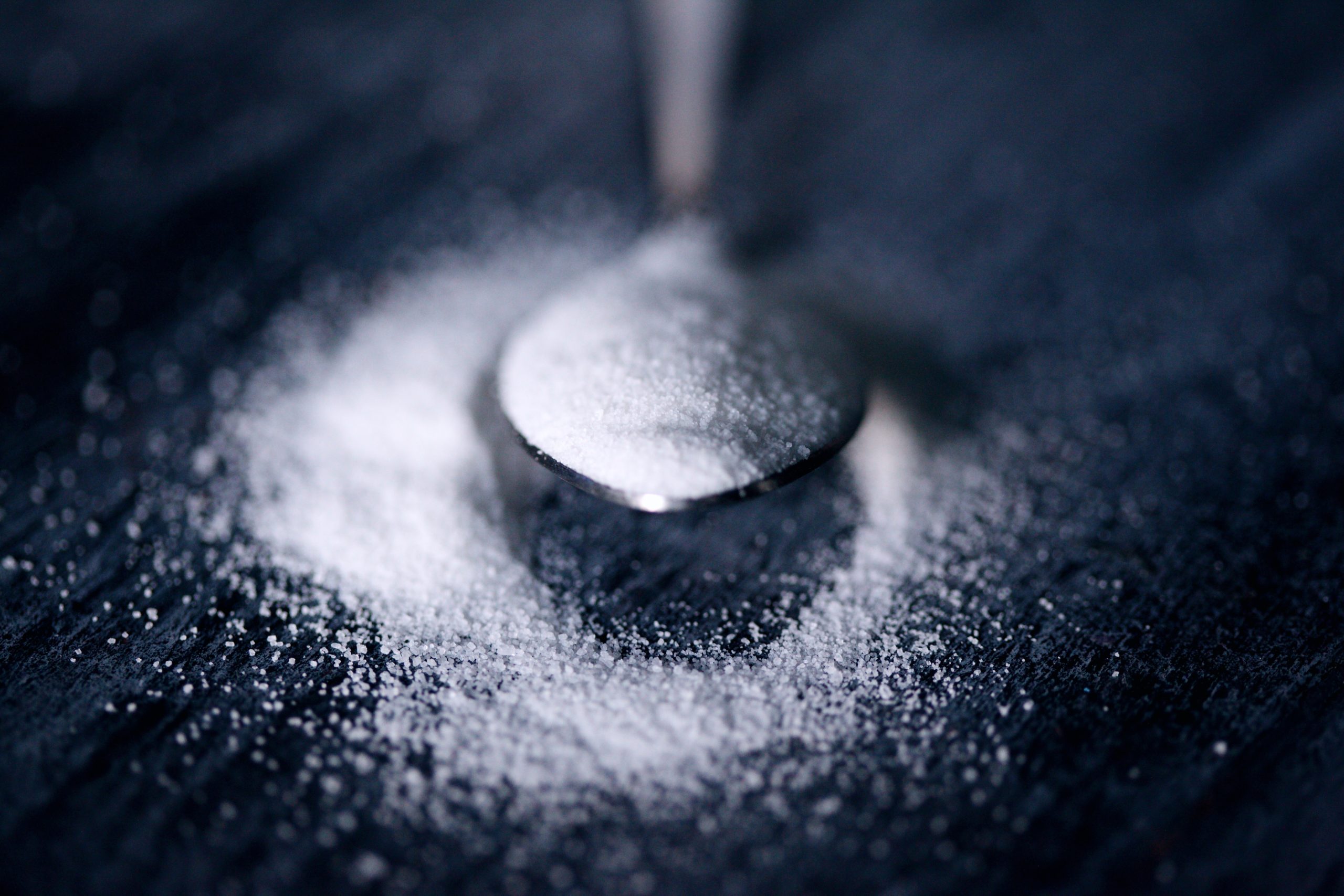Library
Subscribe
Healthy Sugar Alternatives
Published on Thu Jul 4, 2019 - 3 min read

Mary Poppins famously sang, “A spoonful of sugar helps the medicine go down,” but ironically sugar is the reason many Americans need medicine to begin with. The health benefits of reducing sugar intake are vast. Fortunately, you don’t have to choose between enjoying the sweeter things in life or your health as there are an equally vast amount of healthy sugar substitutes on the market today. Use our handy list below to get the scoop on some of the best healthy sugar alternatives and how to incorporate them into your everyday diet.
- Stevia is a zero-calorie extract from the plant species Stevia rebaudiana, native to Brazil. The active compounds in stevia are steviol glycosides which are up to 300 times sweeter than sugar. These steviol glycosides activate the sweet taste receptors on the tongue but are unable to be metabolized by the body. Stevia is the best option for diabetics or those on ketogenic diets as it has no calories, no carbs and won’t raise blood sugar levels.10 Sugar equivalent: 1/4:1
- Monk Fruit sweetener is getting a lot of attention these days and for a good reason. The extract is 250 times sweeter than sugar and like stevia, has no calories or carbs and won’t raise blood sugar levels. Monk fruit gets its name from the monks who have harvested the fruit in China for centuries. Studies show that monk fruit has immune-boosting and anti-inflammatory properties.11 Most monk fruit products are blended to be equal to table sugar. Sugar equivalent: 1:1
- Coconut Sugar is derived from the blossoms of the coconut tree and is one of the best sugar substitutes as it behaves exactly sugar, tastes like sugar. Coconut sugar is also high in potassium, iron, several vitamins and has natural fibers that help slow sugar absorption, which helps prevent insulin spikes.12 Diabetics should still be cautious as coconut sugar contains as many calories and carbohydrates as regular sugar. Sugar equivalent: 1:1
- Xylitol, Sorbitol, and Erythritol are common sweeteners known as sugar alcohols. These sugar alternatives are naturally occurring in plants, can be produced via fermentation, and are popular because they taste like sugar, have half the calories, and won’t spike blood sugar levels.13 Despite the name, sugar alcohols do not contain ethanol and are safe for those who do not consume alcoholic beverages. Sugar alcohols vary in sweetness from 25 to 100% as sweet as sugar. Check labels. Sugar equivalent: varies.
- Raw Honey is the original and arguably the most natural of all sweeteners. Known as the nectar of the gods, honey is a remarkable feat of honey-bee chemistry. Honey has more than 181 different chemical components that give it its complex flavor and myriad of health benefits.14 Several studies show that honey lowers blood sugar when replaced for refined sugar in the diet. Additionally, it has anti-inflammatory, immune boosting, and cholesterol-lowering effects15. Choose raw and unrefined honey as heating and filtering destroy many of the benefits of honey. Sugar equivalent: 3/4:1
- Agave Nectar is produced from the sugary sap of the agave plant. Native to Mexico agave has been used for thousands of years as a sweetener and famously to ferment and produce tequila.16 While agave nectar won’t get you drunk; it will satisfy sugar cravings without raising blood sugar because agave is low in glucose and high in fructose. Glucose is the bodies native sugar while fructose kept out of the blood stream and metabolized by the liver.17 A word of caution, because of agave’s high fructose content, it is best to be used only sparingly as with high doses it may cause insulin resistance. Sugar equivalent: ¾:1
Whether your cooking, baking, or just sweetening your morning cup of joe, here at the Shoppe we have sugar alternative for every occasion. We hope our guide to healthy sugar substitutes proves that sometimes you can have your cake and eat it too – just make sure it’s sweetened with stevia.
References
- https://www.heart.org/en/healthy-living/healthy-eating/eat-smart/sugar/added-sugars
- https://www.forbes.com/sites/alicegwalton/2012/08/30/how-much-sugar-are-americans-eating-infographic/#2fa50a1d4ee7
- https://www.ncbi.nlm.nih.gov/pubmed/27886383
- https://www.ncbi.nlm.nih.gov/pmc/articles/PMC5536157/
- https://www.ncbi.nlm.nih.gov/pubmed/24555673
- https://www.ahajournals.org/doi/full/10.1161/01.CIR.0000019552.77778.04
- https://www.gardenoflife.com/content/sneaky-way-sugar-can-lead-hormone-imbalance/
- https://www.ncbi.nlm.nih.gov/pmc/articles/PMC4290803/
- https://medicalxpress.com/news/2019-03-evidence-strong-sugar-cancer.html
- https://pubs.acs.org/doi/full/10.1021/jf052693e
- https://pubs.acs.org/doi/abs/10.1021/jf201207m
- https://www.ncbi.nlm.nih.gov/pubmed/8814212
- https://www.healthline.com/nutrition/sugar-alcohols-good-or-bad
- https://www.beeculture.com/the-chemistry-of-honey/
- https://www.ncbi.nlm.nih.gov/pmc/articles/PMC5817209/
- https://link.springer.com/article/10.1007/s12231-009-9092-5
- https://www.niddk.nih.gov/news/archive/2017/tale-two-sugars-fructose-glucose-cause-differing-metabolic-effects
Published By:
 Bryan Bradford
Bryan Bradford